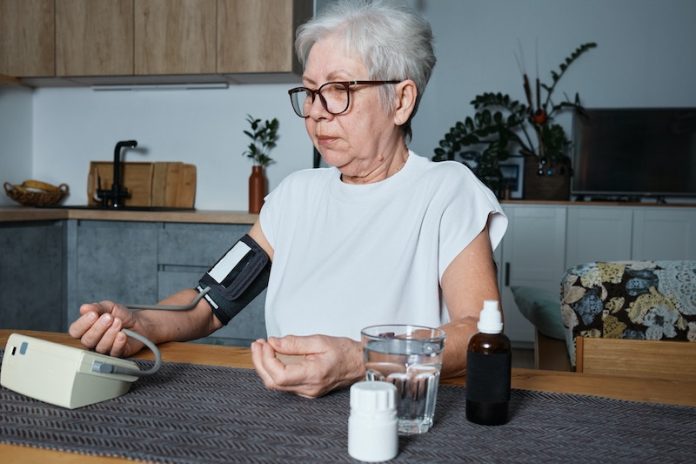
In a comprehensive review, an international panel of experts from 18 countries, including Professor Bryan Williams of UCL, has advocated for lifestyle changes to prevent and manage high blood pressure.
The position paper, published in the Journal of Hypertension, is based on the latest scientific evidence and provides insights into a more holistic approach to blood pressure control.
Beyond Traditional Approaches
In addition to conventional lifestyle changes like healthy eating, regular exercise, and smoking cessation, the paper brings attention to lesser-known but effective interventions:
Mindfulness Practices: Meditation, yoga, and muscle relaxation techniques are recommended for stress management, which can help lower blood pressure.
Sleep Quality: Experts recommend that healthcare providers should examine all aspects of sleep, such as duration, timing, and quality, and advocate for public awareness campaigns to promote better sleep.
Air Pollution: Evidence shows a strong dose-response relationship between exposure to air pollution and blood pressure.
The paper recommends that individuals exercise in less polluted areas and calls for governmental action to improve air quality.
A Holistic Approach
Hypertension affects approximately 4 in 10 people globally, and while medications are available, lifestyle interventions are often the preferred first line of treatment.
“The evidence supporting these interventions is accumulating,” said Professor Bryan Williams.
“Everyone should be able to find some time in their day to relax and decompress, as it significantly contributes to cardiovascular health.”
Lead author, Professor Fadi Charchar of Federation University, Australia, emphasized that the aim was to provide a “holistic set of recommendations which focus on all areas of health.”
The Importance of Self-Care
The authors stress that self-care measures are not a “soft” alternative to medical treatments but can play an important role in hypertension management.
“It might seem less dramatic than taking medication, but these lifestyle changes can make a substantial difference in cardiovascular health,” said Williams.
With these guidelines, the panel aims to educate healthcare providers and the public about the diverse strategies available for blood pressure control, stressing that even simple lifestyle changes can make a significant impact.
Recommendations for Physical Activity
The paper also provides specific advice around exercise, including aerobic activities like brisk walking and running, strength training, and isometric exercises like hand grip exercises.
Call to Action
The authors also call for population-based campaigns to raise awareness about these lifestyle interventions, emphasizing the need for collective action, including governmental initiatives to improve air quality.
“Prevention is better than cure. By focusing on these lifestyle changes, we aim for a more comprehensive approach to managing hypertension,” concluded Professor Charchar.
If you care about blood pressure, please read studies about blood pressure drug that may increase risk of sudden cardiac arrest, and these teas could help reduce high blood pressure.
For more information about health, please see recent studies about nutrient that could strongly lower high blood pressure, and results showing this novel antioxidant may help reverse blood vessels aging by 20 years.
The research findings can be found in the Journal of Hypertension.
Follow us on Twitter for more articles about this topic.
Copyright © 2023 Knowridge Science Report. All rights reserved.



